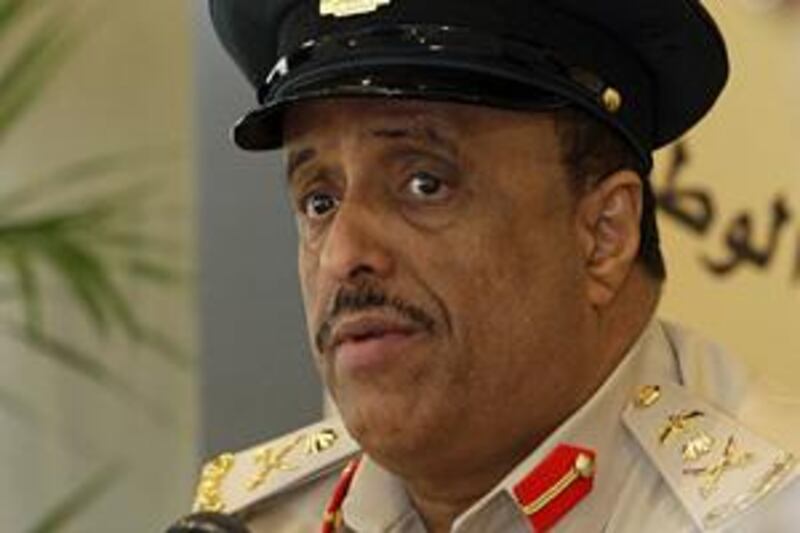DUBAI // The city will not become a better place to live until all sections of society address its unhealthy market atmosphere, the emirate's police chief told a discussion group yesterday. Lt Gen Dahi Khalfan Tamim said at the meeting, which included representatives of property, hotel and hospitality companies, that the community needed to work together to improve the quality of life for all.
"We are in the midst of an economic crisis and everyone knows its impacts," he told the group at police headquarters, called together to discuss problems and solutions for the city. "We have started to sense it with, for example, increasing rent prices which have created a serious source of worry for many people. "For this, we felt the need to launch a campaign, an initiative, which will aim to have the benefit of the individual and the country at its core. When people spend all their salary to eat, drink, pay rent and educate their kids without having any savings, that is not right.
"The aim is to make Dubai a good place to live in, visit and work in and to give security to as many jobs as possible that have been affected. "There should also be less pressure put on businesses so that they are not forced to let people go." Gen Tamim suggested that some business owners, driven by greed, had contributed to the economic downturn. "What is a reasonable percentage of profit which should be gained by a trader? There has been a big case of exploitation from people and the phenomenon has become totally unnatural.
"The leap in rent prices involves not just new developments, but also old ones. This situation existed before the crisis but I have noticed that it continued even after the crisis. "Why is it that a one-bedroom flat bought for Dh450,000 (US$122,514) needs to be sold for Dh1 million? This is a big thing. Why is Dh1m not a good enough profit for some?" Gen Tamim said that, to create a healthier market atmosphere in the city, prices should be affordable to the masses, which would also lead to improved tourism.
"To secure a lasting trade industry, prices should be affordable and reasonable," he said. "Dubai has many advantages that many other GCC or Arab countries do not have. "However, under these circumstances we should work in a different manner and lowering hotel prices is key, as the entire market is linked to tourism. "The tourist who arrives and who needs accommodation is also the one who would be renting a car and buying from shops. It's a cycle and they are all linked."
Sheikh Khalid bin Zayed bin Saqr Al Nahyan, chairman of the executive committee of the Dubai Economic Council, said there should be a balance between prices and services so that most members of society could benefit, not just the rich. "We are currently facing inflation and when this happens, the first group which are affected are those with limited income," Sheikh Khalid said. "Those who are wealthy could protect themselves in such difficult times. There should be a balance and adjustment made with the services and how much they cost."
Mohammed bin Hareb, the executive director of operations and marketing at the Department of Tourism and Commerce Marketing, said the department could not interfere with the prices of hotel rooms. "When the demand is higher than the supply, the prices go up," he said. But Mr bin Hareb said that since the economic downturn, the sector had begun to re-evaluate and has started seeking new ways of attracting more international tourism including lower prices and trying for new markets.
rabubaker@thenational.ae






